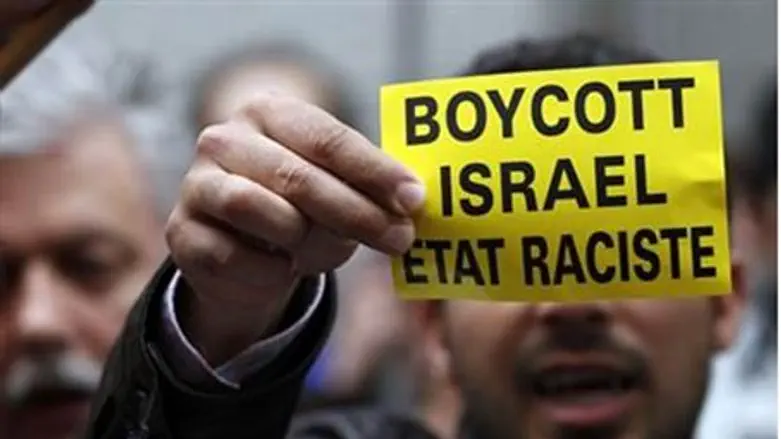
Sixteen out of the 28 EU countries want the bloc to label products from Judea and Samaria in an economic attack on the Jewish state, diplomatic sources told AFP Thursday, confirming a Haaretz report.
The plan was first mooted in 2012, but the 16 member states told EU foreign affairs head Federica Mogherini it was now time to press ahead as part of efforts to force Israel to divide in a "two state solution."
The 16 include Britain, France, Spain and Italy but not Germany.
"We would welcome you taking the lead in the (European) Commission in order to complete this important work on labeling settlement produce/products," the foreign ministers said in the letter, reproduced by the Israeli newspaper Haaretz.
Continued Jewish presence in Israel's Biblical heartland "threatens the prospect of a just and final peace agreement," they claimed, adding that labeling would make it clear to consumers what they were buying as endorsed by EU leaders at a summit in 2012.
In response, a senior Israeli diplomat told the EU "labeling products from Judea and Samaria is a yellow badge," referencing the "Jude" stars the Nazis forced Jews to wear during the Holocaust. Thursday marks Holocaust Remembrance Day.
Despite the EU claims, the 2012 Levy Report proved proved conclusively that the Jewish presence in Judea and Samaria is legal according to international law. Despite the report being commissioned by Binyamin Netanyahu's government, it has yet to be adopted.
Israel blasts the move, seeing it as part of efforts to isolate the country, and has been critical of Mogherini who visited Israel and the Palestinian Authority (PA) in December.
"We cannot accept that produce from the settlements in occupied territory be freely traded," one EU diplomatic source said.
"The letter shows Europe's determination to put into effect what was agreed in 2012," said the source, who asked not to be named.
The foreign ministers' letter said labeling "is an important step in the full implementation of EU longstanding policy, in relation to the preservation of the two-state solution."
The letter was signed by Austrian Foreign Minister Sebastian Kurz and drafted, according to Haaretz, by his Belgian counterpart Didier Reynders who also signed it.
Sweden, Malta, Ireland, Portugal, Slovenia, Croatia, Finland, Denmark, The Netherlands and Luxembourg were the other signatories.
Mogherini's office declined to comment immediately and said they were checking the report.